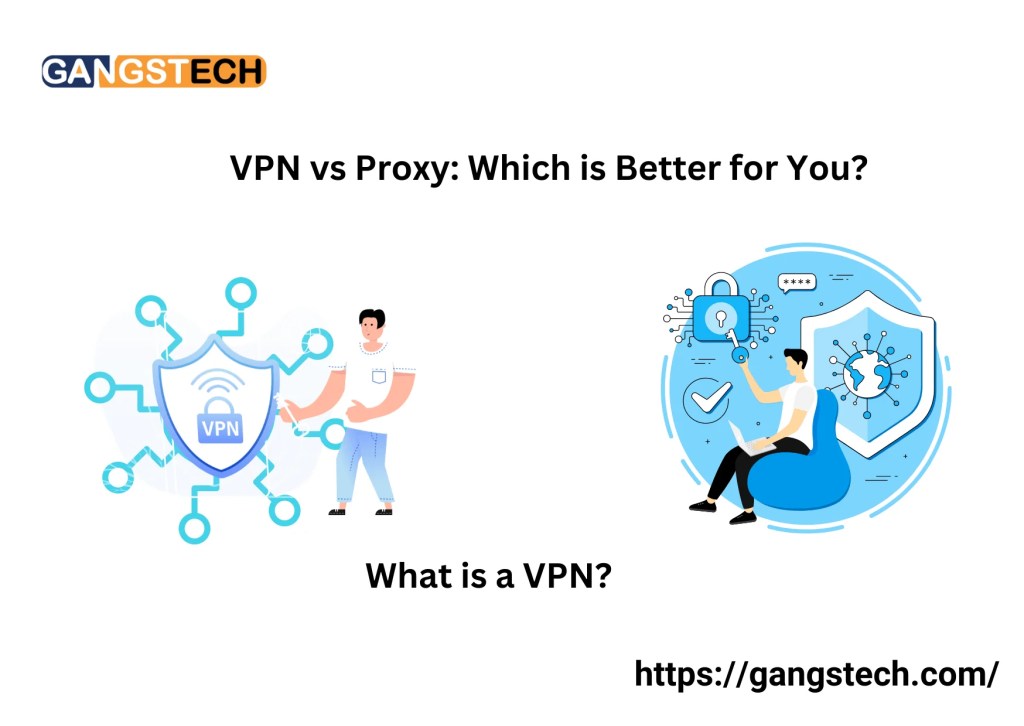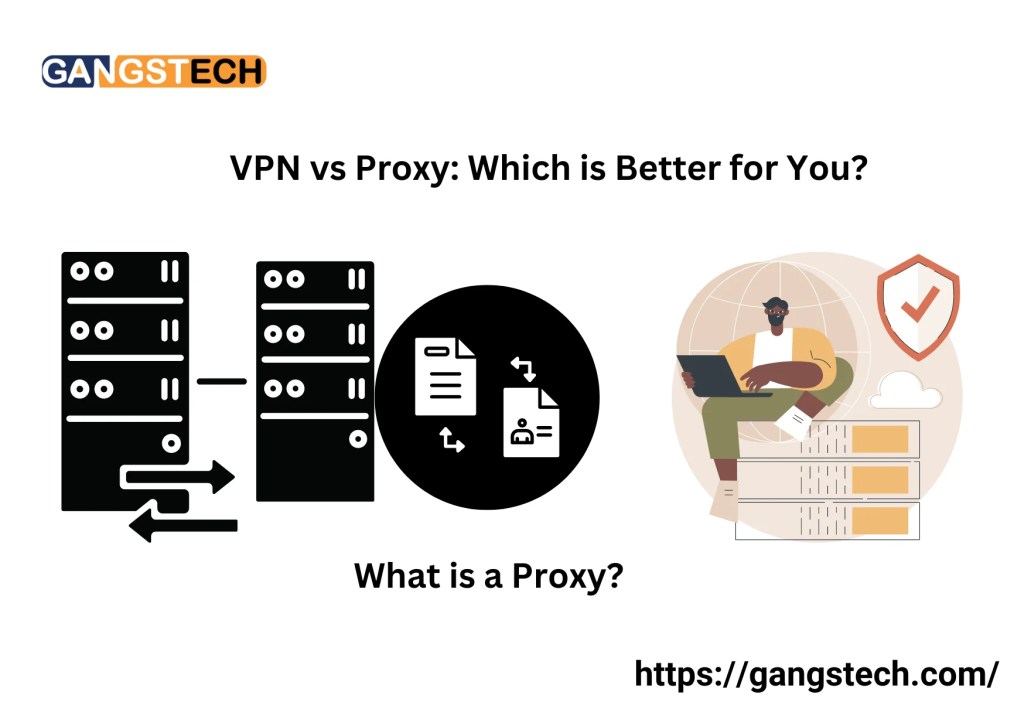Both proxy and VPN are popular tools when it comes to online privacy and security. But which one is better for you? In this guide, we’ll explore the differences between these, so you can use them per your needs.
Do you know : The VPN market expand to $350 billion by 2032.
Source : Statista
What is a VPN?
A VPN is a private network that creates a secure connection between your device and the internet. It hides your actual IP address and assigns a fake IP address. VPNs are used for

A VPN is a service that encrypts your internet traffic. It routes your traffic through a server in a location of your choice. This hides your IP location and secures your data.
How does a VPN work?
When you turn on a VPN, your device connects to a remote server. This server acts as a middleman between you and the websites you use. Before any of your information leaves your device, it’s protected by the VPN.


The VPN server also masks your real IP address, so your actual location isn’t revealed. It’s one of the reasons people use VPNs to access content.
You Also Like “11 YouTube Powerful SEO Tools“
Benefits of VPN
You can enjoy several benefits, including
- They Protect Your Privacy.
- It keeps You Safe on Public Wi-Fi.
- You can Access Restricted Content using vpn.
- They prevent 3rd party Tracking.
- It enhances Online Security.
- Vpn Helps to Avoid Censorship.
- They reduce the Risk of Cyberattacks.
What is a Proxy?
In a proxy, your requests go through the proxy server first. The server then forwards your request to the website. They hide your real IP address to see the proxy’s IP instead of yours. This can help with privacy and accessing blocked content.

Proxies are used for
- Keeps your IP address hidden.
- Bypass region blocks or firewalls.
You Also Like “11 powerful Youtube SEO Tools“
There are different types of proxy servers, including
- HTTP Proxy
- HTTPS Proxies
- SOCKS Proxies
- Transparent Proxies
- Anonymous Proxies
- Elite Proxies
Benefits of Using Proxies
- They protect your privacy.
- They help you bypass geo-restricted content.
- They offer an extra layer of security by filtering out malicious content.
- Proxies can cache often-accessed content.
You Also Like “Alternatives of ChatGPT“
VPN vs. Proxy: Key Differences
The main differences are
| Feature | VPN | Proxy |
|---|---|---|
| Role | Encrypts internet traffic and hides IP address. | Hides IP address but does not encrypt traffic. |
| Security | They offer encryption for data protection. | only acts as an intermediary. |
| Encryption | masks identity and encrypts the connection. | They typically do not encrypt data. |
| Speed | Slower | fast |
| Works on | Entire device | Specific applications |
| Bypassing Geo-restrictions | Yes, effectively | Yes, but not work for all services |
| Setup Complexity | Requires installation of VPN software | Generally easier to set up |
| Cost | Usually paid | Mostly free available |
| Logging Policies | Reputable VPNs often have no-logs policies. | Most proxies log user activity |
Which is Better for You?
Choose a VPN if
- You need strong security.
- You handle sensitive information online.
- You want to access geo-restricted content securely.
- You often use public Wi-Fi.
Choose a Proxy if
- You need to bypass simple geo-restrictions.
- You want to hide your IP address.
- You prefer a free service for basic tasks.
Conclusion
The right choice depends on your needs. So, which is better for you? If security is your main concern, a VPN is the way to go. Yet, if you’re simply looking to bypass regional content restrictions a proxy will suffice.
Also Read: Blockchain Technology in Digital Marketing
Faqs
What encryption protocols do VPNs use?
They typically use protocols like:
Open
IKEv2/IPsec
WireGuard
L2TP/IPsec
PPTP
How does a proxy server work for web scraping?
Proxies are used for web scraping to prevent IP blocking. They allow large-scale data extraction from websites without getting blocked.
Can VPNs protect against DNS leaks?
Yes, many high-quality VPNs offer DNS leak protection.
What is a double VPN, and how does it work?
A double VPN routes your traffic through two servers. They offer an extra layer of encryption.
Are there any risks using free VPNs or proxies?
Yes, free VPNs and proxies often come with risks like
Limited bandwidth and slow speeds.
Weak encryption,
Selling user data to third parties.
Ads and malware
What is split tunnelling in a VPN?
Split tunnelling allows you to choose which traffic goes through the VPN and which goes directly to the internet.
How do proxies handle HTTPS traffic?
HTTP proxies do not naively handle HTTPS traffic.
Discover more from gangstech
Subscribe to get the latest posts sent to your email.


